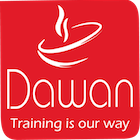Goals
- Prepare to pass the ITIL Service Strategy (SS) certification exam
- Analyze the principles, techniques and relationships to create an SS
- Identify the purpose, scope and objectives of each SS process
- Assess governance IT to strategize and leverage governance frameworks and organizations
Program
– The context in the service life cycle of the tendering and service agreement processes
– Strategy management for IT services
– Design coordination
Principles of service portfolio management
– Relationship between service catalog and service pipeline
– Think strategically
– Succeed in capturing the customer’s attention
– Design the service portfolio
– Allocation of resources
– Combine business and IT services
Include the service catalog in the service portfolio
– Purpose, goals and objectives
– Technical service catalogs and business catalogs
– Enumeration of operating services
– Use metrics and key success factors
– Create a service catalog
Objectives of service level management
– Meaning of service level management
– How service level management creates value for the business
– Analysis and explanation of the scope of the process
– Policies, principles and basic concepts of service level management
The service level management process
– How process activities relate to the service life cycle
– Negotiation of service level agreements (SLAs)
– Deliverables, roles and responsibilities
– SLAs, operational level agreements (OLA) and review meetings
– Service improvement plans – Monitor service performance against SLAs
– Management of demand based on activities and business activity profiles
– Manage capacity to optimize value
– Identify business activity profiles
– Associate demand management with the portfolio of services
– Analysis of the use of the process supplier management
– Process, scope and objectives
– Evaluate new suppliers
– Categorization of suppliers and maintenance of the supplier and contract database
– Ensure supplier performance
– Administration and management of contracts
Contribution of financial management to the lifecycle of services
– Management of financial considerations
– Scope, purpose and objectives of the process
– Basic concepts: financing, accounting and invoicing
Principles of financial management
– Value for the business
– Create a business case
– Apply information management
– Produce and disseminate information
– Manage difficulties and risks
Aim, objectives and scope of the BRM
– Activities, methods and process techniques
– Triggers, inputs, outputs and interfaces
– Key success factors and key performance indicators
– Management of the service portfolio, the service catalog, service levels
– Supplier manager
– The implementation of technology is part of service management
– Specific technological functions related to service offers and agreements
Duration
5 days
Price
£ 2352
Audience
IT directors, managers, system administrators, developers, all those concerned by IS
Prerequisites
Have taken the ITIL Foundation course or equivalent concepts
Reference
GES101218-F
Sessions
Contact us for more informations about session date
